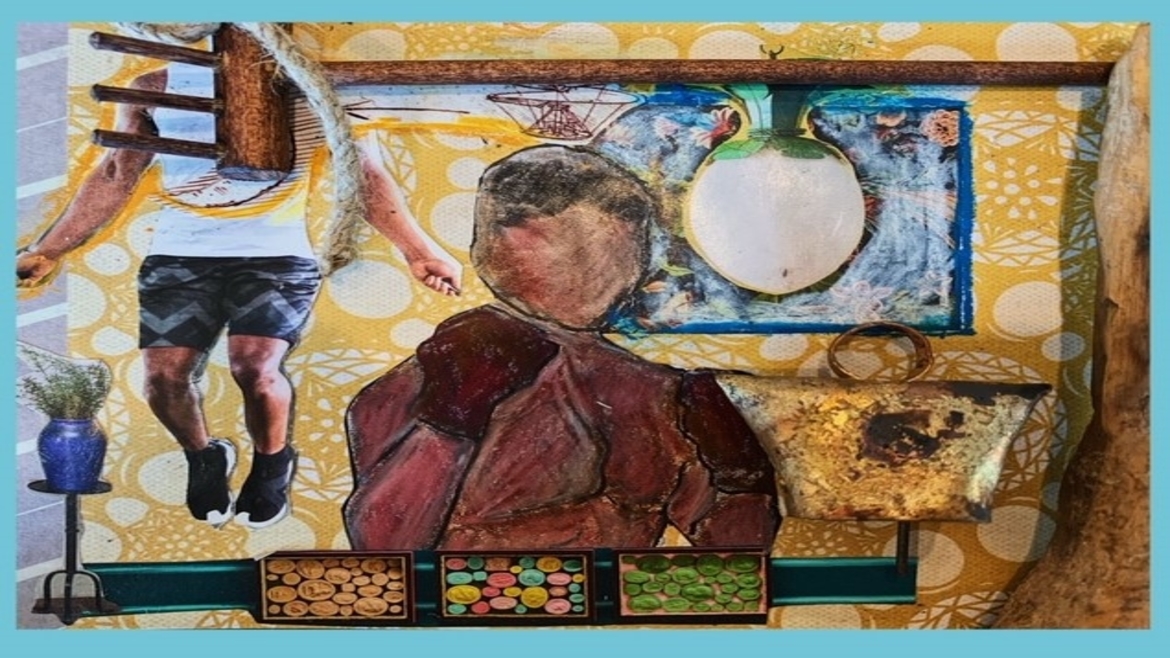BY DR. JASON PARK
Response art collage based on the blog post and created by Andrea Cowan
For many of us in The Stability Network, we lived our first decades in a certain way. Then the illness struck and our mental health diagnoses forced us to adapt and grow or decline. A significant part of that transformation meant learning how to identify our strengths and minimize our weaknesses. Developing vigilant self-awareness can make the difference between a life of meaning and purpose and one that is muddled by confusion and doubt.
Like athletes, we became experts at training our minds and bodies. We learned to recognize the automatic and negative thought patterns that kept us stuck in frustration. We faced the setbacks of mental illness through therapy practices that quieted our internal self-critical voice.
The boxer Cassius Clay also discovered how to adapt his thoughts and actions to move forward. Becoming Muhammad Ali was more than a simple name change. The real transformation occurred when he was prevented from boxing in his 20s—the best years of a boxer’s career. He also became 25 lbs. heavier and no longer qualified as a light heavyweight. He could not “float like a butterfly, sting like a bee,” nor do the center-ring jig known as the “Ali shuffle” around his opponents. Muhammad Ali leveraged his age and weight as an asset that could help him invent a new boxing style. That strategy was the “rope-a-dope,” which showcased Ali’s tremendous ability to take a punch and his ability to counterpunch viciously after his opponent tired of hitting him. He used this to great effect in his bout with George Foreman.
All of us must learn to reinvent ourselves, perhaps not exactly as Muhammad Ali/Cassius Clay did with his boxing style, but perhaps through our own changes in “lifestyle.” We simply cannot live our lives in the same way that we did before our diagnosis. By practicing new thinking skills, we are able to recognize the cognitive distortions and overgeneralizations that keep us stuck. And if we can learn to reinvent ourselves, to live a new way, as free of stress and pain as possible, then we should really be proud of ourselves.
So as a writer, I know where my inspiration comes from. As Ernest Hemingway himself once wrote through the character of Santiago in The Old Man and the Sea, “A man can be destroyed but he can never be defeated.” We should all take heart from those words.

Dr. Jason Park earned his BA with honors in philosophy from Harvard University and his PhD in strategic management from the University of Pittsburgh. He was a professor in Hong Kong first before returning to the U.S. to teach at the University of Southern California. He is now a writer. In his free time, he volunteers for The Stability Network, the Depression & Bipolar Support Alliance, and the National Alliance on Mental Illness.


One response to “What We Can Learn From the Ali Shuffle”
Fantastic post. Love “reinventing”; I cannot live like I used to live. My food, sleep, exercise, quiet time has changed 100%. Thank you for the reminder that it’s okay, required and proves to be quite effective.
Thank you.